Young and Old are Job Hunting; These 5 Indie Books Can Help
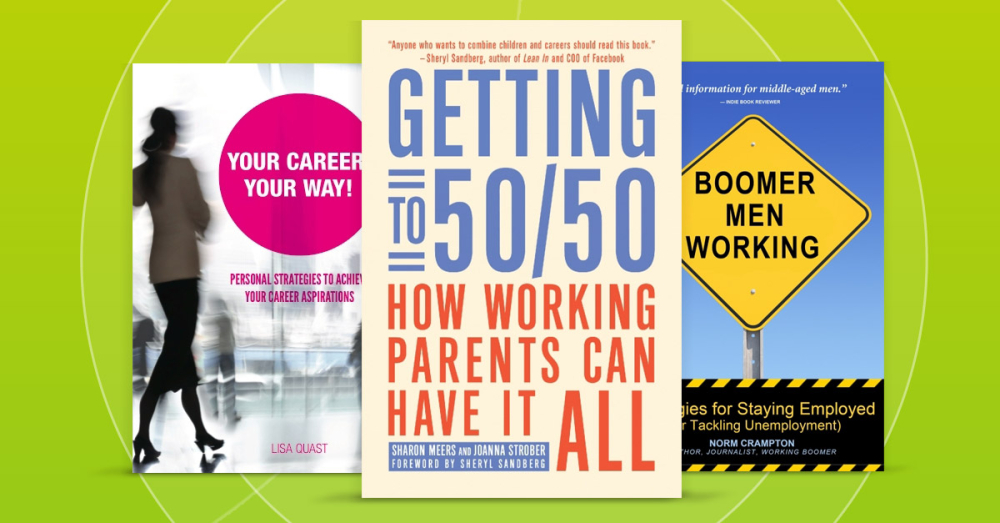
Economic conditions have changed the traditional workforce and, these days, job seekers can be young, old, or in between. More women make up the workforce than men. Parents and baby boomers alike may be seeking part-time rather than full-time employment. Retirement is a fading dream. Self-employment is a popular option, especially with professionals who may have lost or left positions with employers.
When it comes to careers, the times they are a changin’, but indie career titles have managed to change with the times. Indie books have a way of precisely targeting job seekers in just about any demographic, regardless of their career aspirations. Here is a sampling of career titles that do just that.
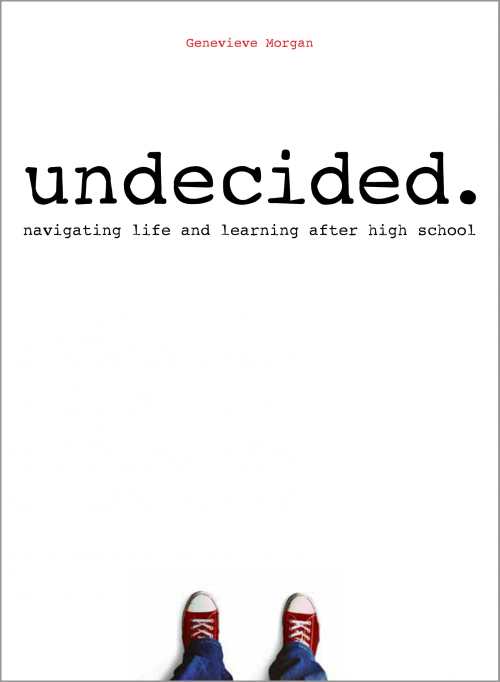
Undecided: Navigating Life and Learning After High School by Genevieve Morgan (Zest Books)
The notion that college is the inevitable next step for high schoolers is challenged in this book that targets high school students. Genevieve Morgan helps readers explore possible paths after high school by first focusing on a student’s personality, passions, and needs. Then, in discrete sections, she covers higher education (not just traditional college, but trade schools, distance learning, and study abroad), service (military, civil, and foreign), and work (internships, apprenticeships, getting a job, and starting a business). The author includes a useful chapter titled “Get Busy Living,” which offers advice about travel, gap years, and community development. She also supplements the text with interesting stories of famous people who took both conventional and unconventional paths to success.
One of the comforting aspects of Morgan’s book is she is nonjudgmental and makes no assumptions about a young person’s post-high school plans. Focused on the importance of a completely individualized approach and with encouraging optimism, Morgan advises “you are at an age when a little extra time spent in the right way (or even the slightly wrong way) is not going to ruin your endgame. Instead, it will probably sharpen your focus and improve the outcome in the long run.”
Your Career, Your Way: Personal Strategies to Achieve Your Career Aspirations by Lisa Quast (Career Woman)
In this 2012 IndieFab Award winner, women’s career coach Lisa Quast encourages women in the workforce to create a career strategic plan. She approaches the challenge of career planning almost as if packaging and promoting a product, recommending these ten essentials, from reviewing your assets and liabilities to celebrating and rewarding incremental achievements. Quast employs two fictional characters, Cheryl, 39, and Mackenzie, 27 to guide readers through techniques and exercises.
“I have coached women who have had tremendous success applying these concepts whether they were 20 years old or 60 years old,” Quast writes. “We can all keep learning and growing at any age.” By targeting the female demographic regardless of age, Quast can address the specific life and work issues women face in developing their own career aspirations.
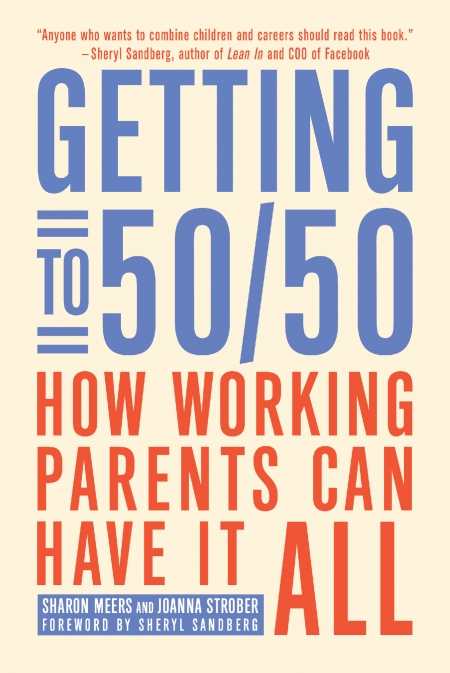
Getting to 50/50: How Working Parents Can Have It All by Sharon Meers and Joanna Strober (Viva Editions)
Not so much a career book as a study of modern American lifestyle, this 2013 IndieFab Award winner takes a decidedly upbeat view of working parents. The authors cite studies that indicate children with stay-at-home and working moms are equally happy with the time they spend with their mothers, and that couples who divide their household chores equally reduce the odds of divorce by fifty percent.
Meers and Strober divide the book into three parts. Part One discusses “why two careers are better than one,” including child care, engaged dads, working parents as role models, and financial implications. In Part Two, the authors aim to “bust the myths about work, women, and men;” here, they examine why women are prone to changing jobs (not always for the right reasons), the fallacy of long work hours, “gender taxes,” and more. Part Three is filled with advice about how couples can create a true 50/50 relationship as a bedrock for successfully having dual careers.
Clearly, this is a book that is finely targeted to a large segment of the US population—couples who want to or have to share the responsibilities of working and raising a family.
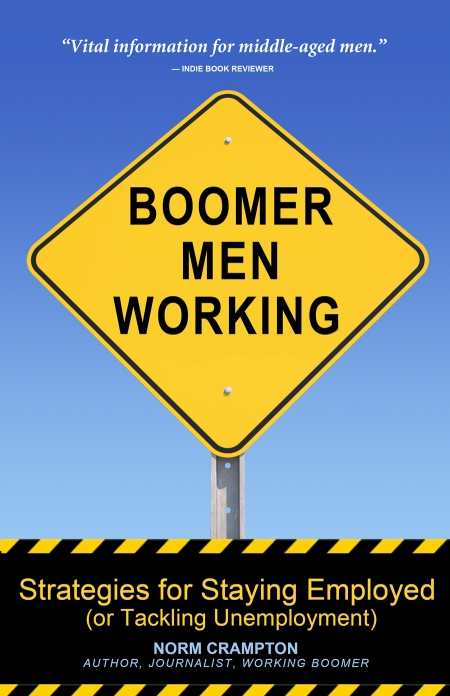
Boomer Men Working: Strategies for Staying Employed (or Tackling Unemployment) by Norm Crampton (Wyatt-MacKenzie)
Focusing squarely on the male boomer, journalist Crampton addresses the vulnerability of the older worker in blunt terms, but he offers sensible, practical advice in a volume that balances how-to tips with real stories of Boomer-age and older men. The very first chapter, “Looking at Your Work Options for the Next 10 Years,” sets the no-nonsense tone. Crampton points out that “non-routine” jobs, regardless of skill level, are the “safest,” offering solid advice about looking for a job, developing an effective resume, handling interview questions, and working with younger employees.
Particularly helpful is a chapter about “what to do between jobs,” reassuring to men who have lost their jobs and might be feeling lost themselves. The author also covers Social Security and Medicare, raising important questions readers should consider carefully. The stories Crampton includes of older men who share their own worklife experiences are relevant, poignant and inspiring.
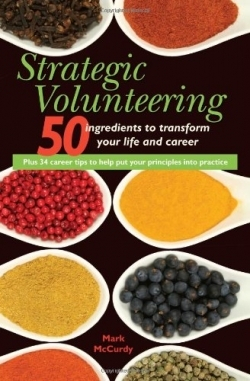
Strategic Volunteering: 50 Ingredients to Transform Your Life and Career by Mark McCurdy (CreateSpace)
I’ve included this last title not because it targets a specific demographic but because of its broadly applicable message. Strategic Volunteering suggests that anyone can benefit from volunteering for a nonprofit, both in terms of personal satisfaction and career development. The author, a professional recruiter for nonprofits, discusses the importance of picking the right volunteer opportunity for the right reasons; passion about a particular organization’s cause is obviously helpful, but so is the ability to learn new skills or practice skills that cannot be utilized while on the job.
Volunteering also presents a viable option for the unemployed, writes McCurdy, not just because it offers them a meaningful way to occupy their time, but through volunteering, the unemployed may find a job with the nonprofit or gain experience that can lead to an appropriate career path. In short, easily readable chapters, the author details the fifty ingredients promised in the title (such as “To make a difference,” “To meet new friends,” “To sample a new career”) and offers thirty-four useful career tips as well.
Barry Silverstein
